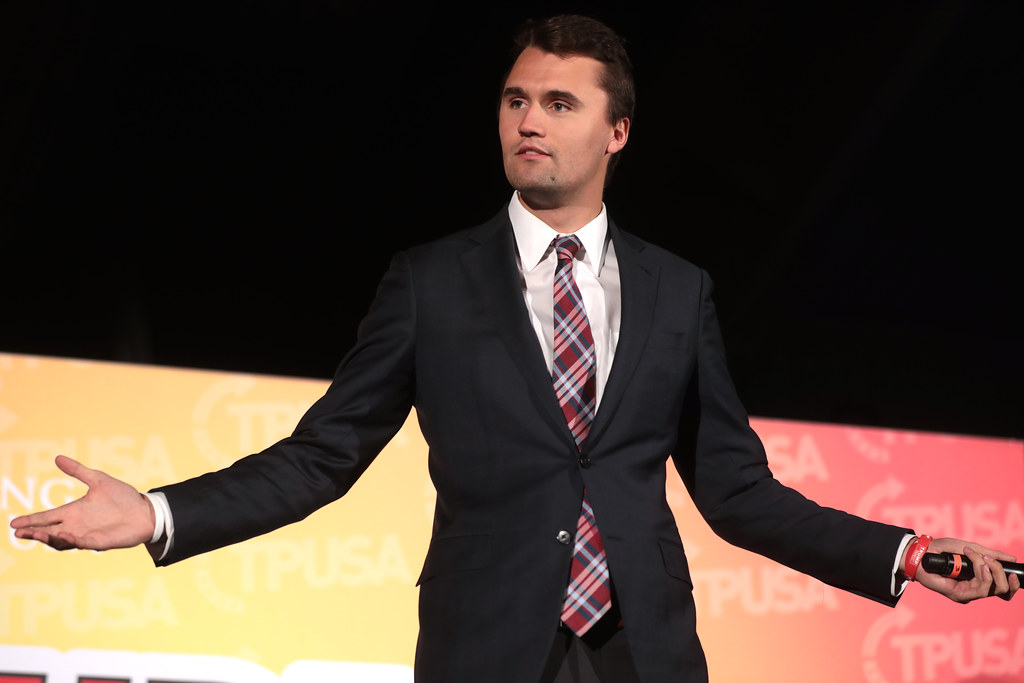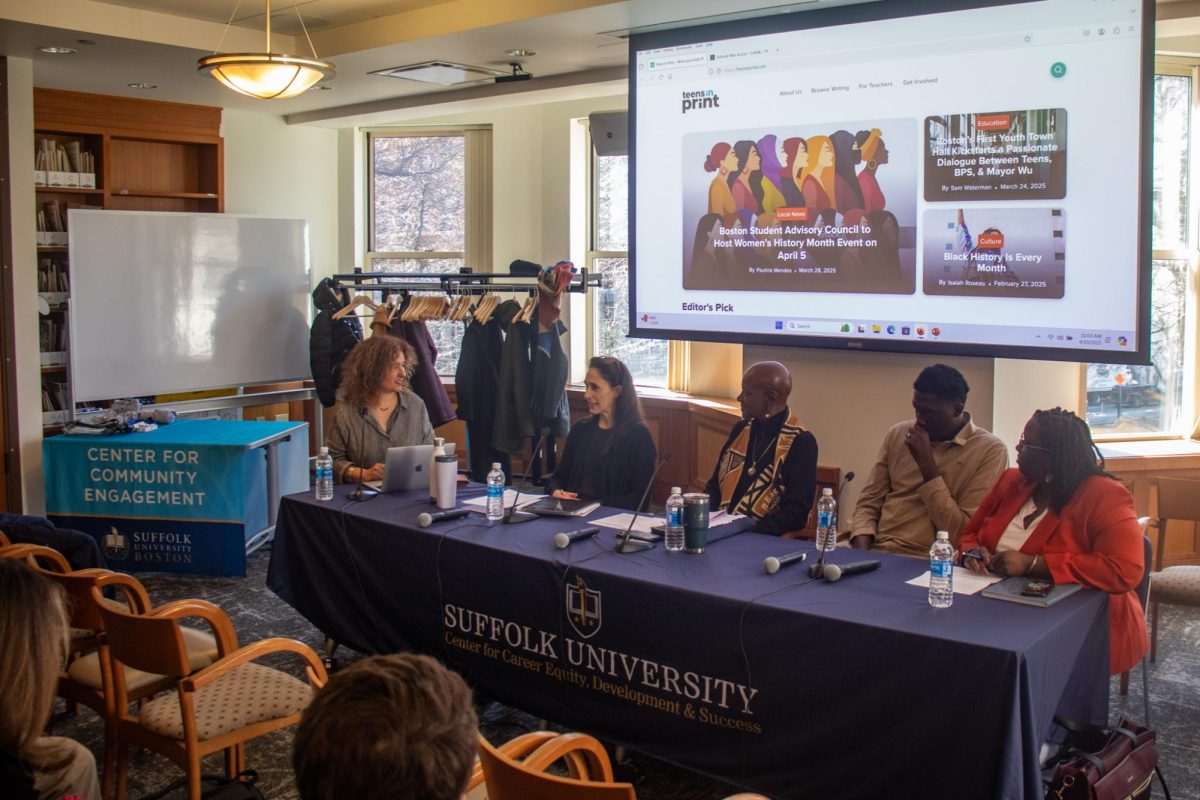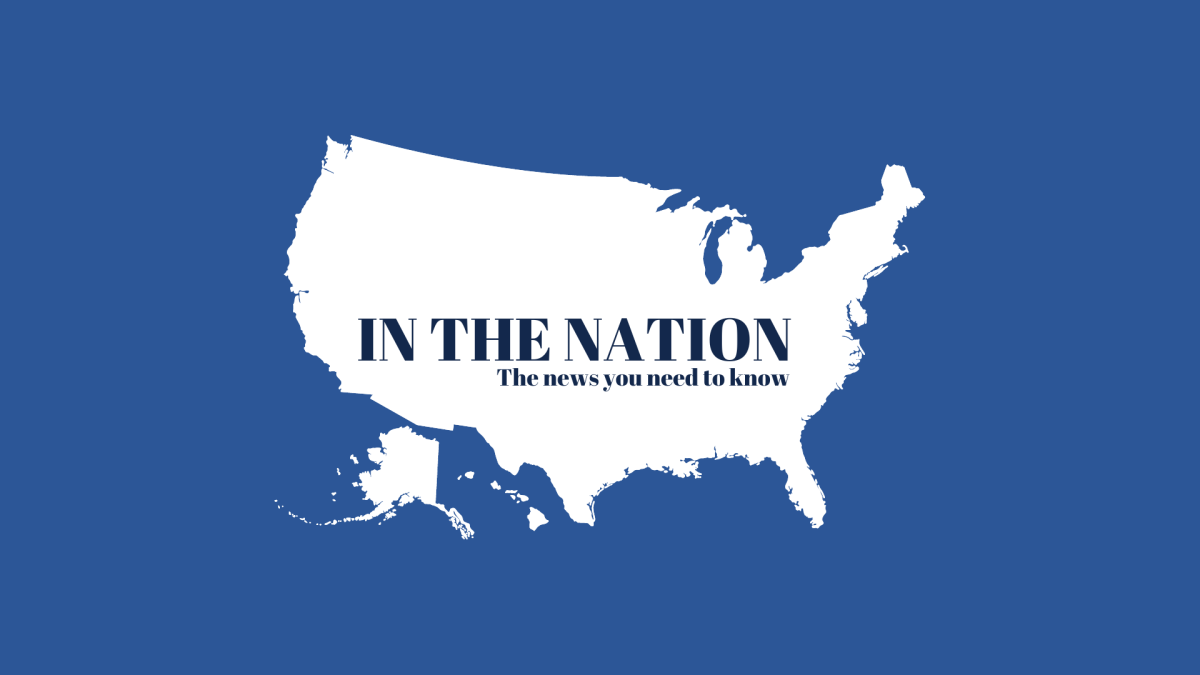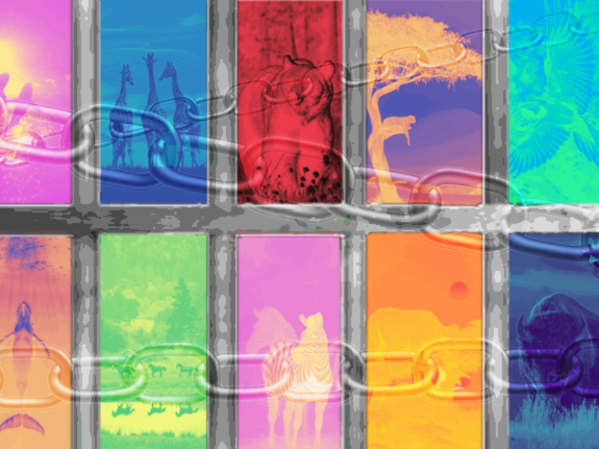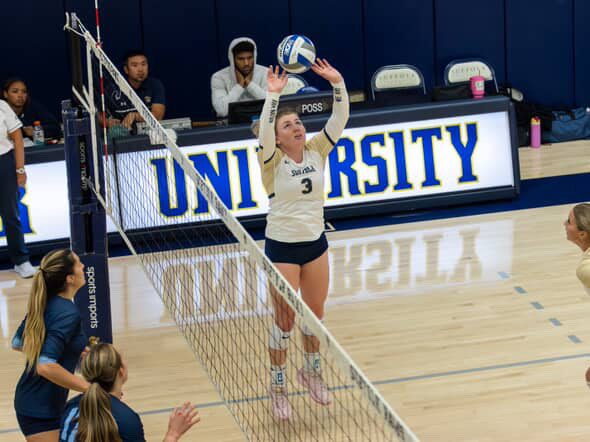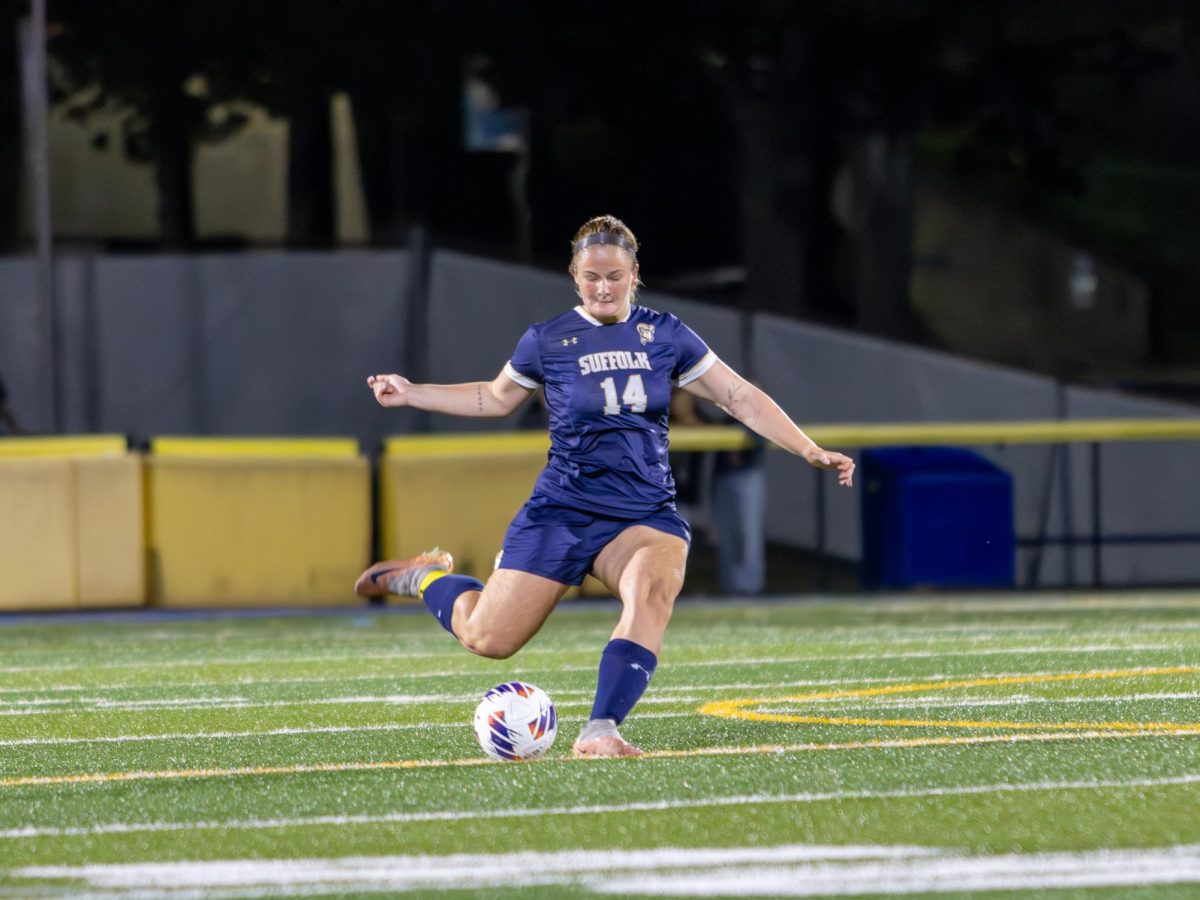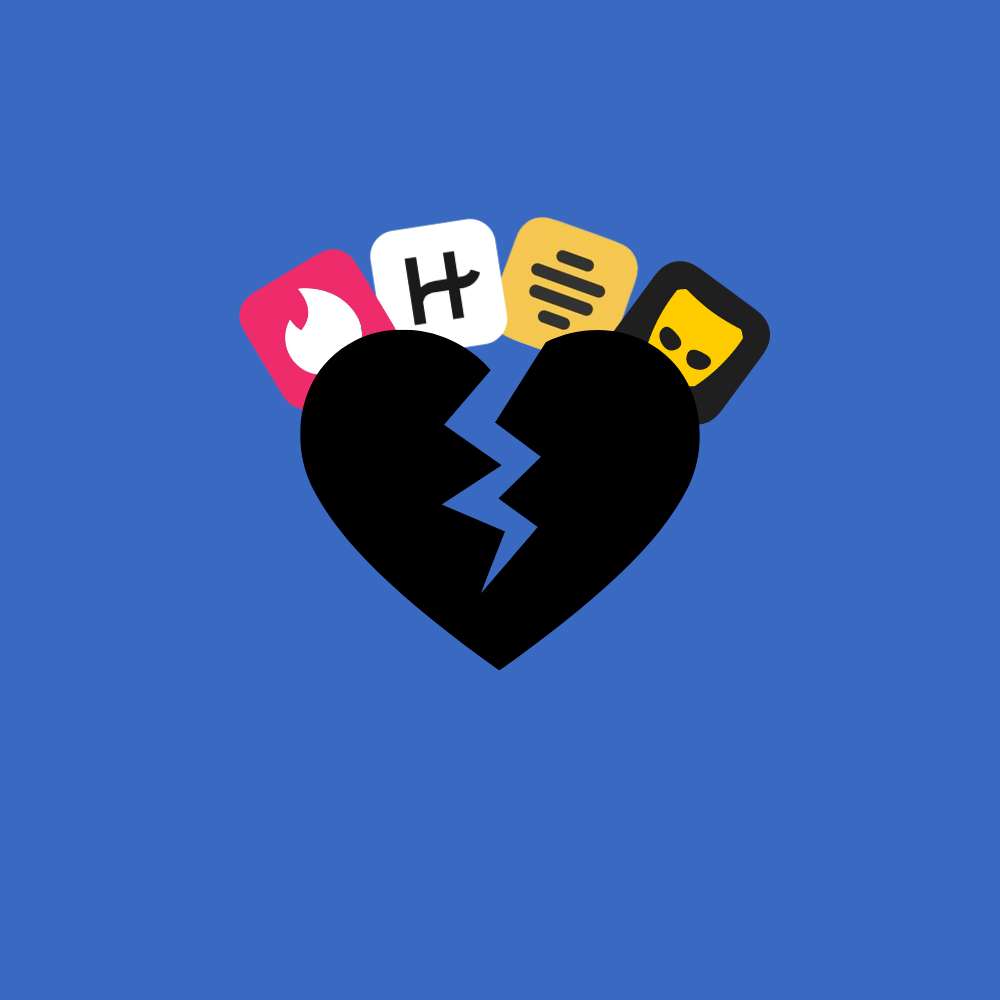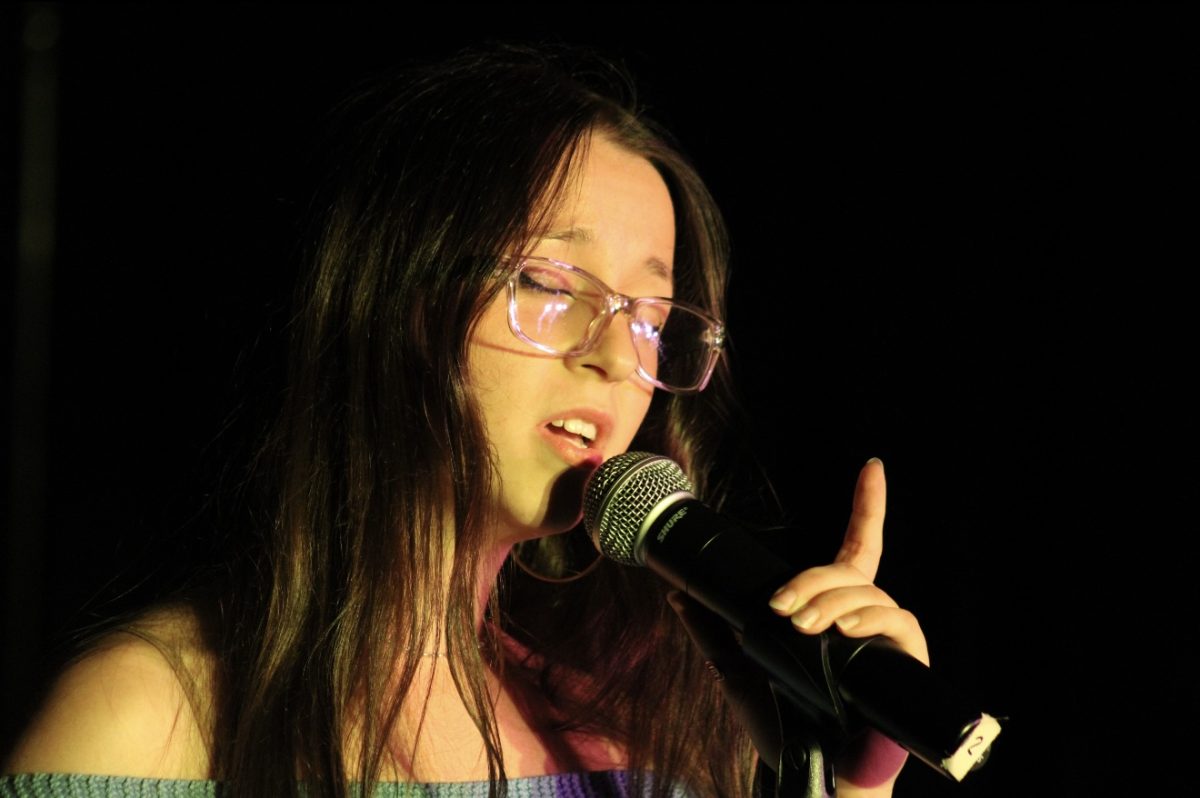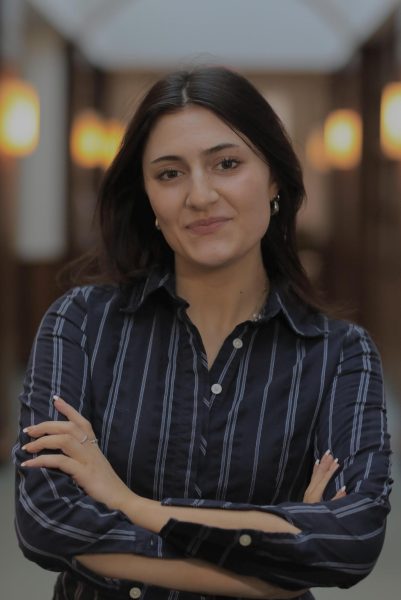Following the assassination of Charlie Kirk Sept. 10 at Utah Valley University, vigils both on Suffolk University’s campus and within the city of Boston have been held to mourn the former political commentator. It is in the aftermath of the act of political violence that Suffolk’s community has seen fires stoked online between both sides of the political spectrum.
Shoshana Madmoni-Gerber, Chair and Associate Professor with the Communication, Journalism and Media department, has witnessed a change in the news cycle following these events. On social media, people were rushing to post witness accounts and theories of the incident before mainstream news coverage.
“On social media, anybody can come up with whatever they want to say, and there is no editor or somebody who’s saying, ‘wait a minute, did we have this? Do we know this for sure?’” Madmoni-Gerber said. “You had students there, people that were on the ground taking videos, and I think it was probably less than an hour that the video was quickly available online… now you have outlets that are trying to fight that rush, so they’re coming up with their stuff.”
The Kirk assassination saw media outlets promptly reporting unverified claims about the shooter’s motives. According to the Bureau of Alcohol, Tobacco, Firearms and Explosives reports, many of the alleged ties are to “transgender and antifascist ideology,” and are based predominantly on social media chatter. Suffolk University College Democrats President Joey Pisani also took note of the mass media coverage of the event.
“I find it so gross and sad that, particularly Republicans, even when a very famous conservative talking head gets murdered, they still take that opportunity where they could maybe come forward with a message of unity and peace, and they use it to attack trans people,” Pisani said. “And we now are seeing more and more instances [of political violence] in recent years, and I think that has to do in large part because of social media.”
The cancellation of Jimmy Kimmel’s late-night show after his commentary on the assassination of Kirk sparked further concerns for Madmoni-Gerber, who saw his commentary as another form of speculation early in a high-profile investigation.
“The whole scandal with Jimmy Kimmel was because there was some indication at the beginning that he was coming from a conservative family,” Madmoni-Gerber said. “Some serious people were initially making these assessments where, you know, almost anything in reality, the picture is more complex than the sound bite or the headline that we saw.”
Although ABC reinstated Kimmel’s show, the concern about freedom of speech in the media is a point of concern for Madmoni-Gerber and Pisani, who see the Trump administration’s willingness to use the Federal Communications Commission against late-night hosts and opposing sides as a concern for First Amendment rights in the country.
“You can do research and still be wrong,” Madmoni-Gerber said. “Was he right to immediately come up like that? I personally don’t agree with that, and I would be cautious again, rushing to any conclusions with things that require so much more examination than coming up with quickly, to say something. And I think there’s always a way to say things without making these kinds of convictions. But should he be losing his job over this? Absolutely not.”
Pisani said, “There’s that age-old thing, you can’t yell fire in a movie theater without facing consequences. A freedom does not mean you are free from consequence.”
In the aftermath of Kirk’s assassination, there have not just been retributions from political opponents of President Trump, but also an uptick in vocal support for Kirk’s endeavors and memory.
Turning Point USA, the Republican youth organization Kirk founded at age 18, has seen a significant increase in start-up chapter inquiries. As of Sept. 16, the organization had 17,700 new inquiries, according to TPUSA public relations manager Aubrey Laitsch.
Suffolk University’s own chapter of the organization held a meeting in memory of Kirk on campus, and multiple demonstrations have taken place across the state and country. Trump attended a memorial at State Farm Stadium in Glendale, Arizona, and a candlelit vigil was conducted in the Boston Common Sept. 20.
For senior political science major Patrick Walsh, being on campus among demonstrations for Kirk and the mobilizing of these groups locally has been a point of concern.
“There’s a level of unease when people who spew hate come together, regardless of their intentions. That makes me feel unsafe, even if they aren’t necessarily an active, harmful force,” said Walsh.
In the wake of political violence at large events, Pisani called on concerns about gun violence at the helm of his reactions.
“Regardless of your interpretation of the Second Amendment, every student out there, whether they would be willing to admit it or not, are scared of guns,” Pisani said. “Everyone in our generation has not had an experience in a school where they haven’t had to do an active shooter drill. Hide under a desk, hide in a corner. How many times have people in our generation had to walk into a classroom for the first time, look around and say, ‘Where am I gonna hide? How am I gonna escape?’”
The discourse between political adversaries, both online and in-person demonstrations, is only continuing as time passes from Kirk’s initial assassination. With concerns about safety among conservative and democratic students in online spaces and on campus growing, Madmoni-Gerber hoped that both sides could agree on a shared reality of democracy in America while discussing these kinds of acts of violence, like Kirk’s killing.
“We cannot have a conversation if we cannot agree on the most basic parameters of reality. And it seems to me that it would be the easiest thing for us to agree on is that we condemn violence, that none of us want to see it especially to somebody who was so committed to debate, and to defending it,” Madmoni-Gerber said.


